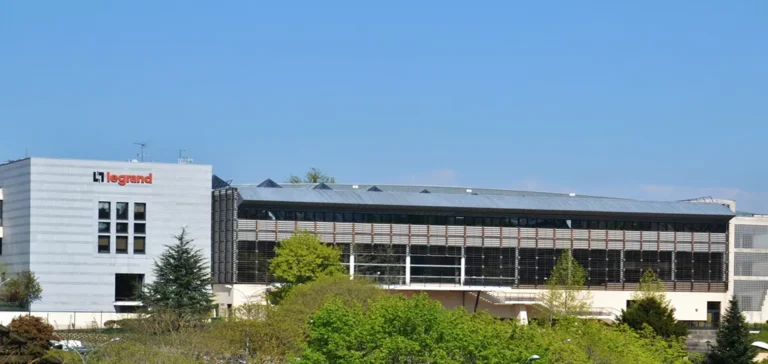The Legrand group, specialised in the manufacture of electrical equipment and devices, posted an 8.7% rise in net profit for the first half of the year, reaching €628mn ($684mn). This result has led the group to revise upwards its adjusted operating margin target for the year, now expected to be between 20.5% and 21.0% of sales, compared to 20.5% previously. The company thus expects to maintain the same level of profitability as seen in 2024.
Data centres at the heart of momentum
Legrand attributes this growth to robust demand from data centres, which now account for 24% of its half-year revenue, up from 20% in 2024. The rapid expansion of these infrastructures, notably driven by the development of artificial intelligence (AI), is expected to generate over €2mn ($2.18mn) in revenue for Legrand this year, a remarkable increase compared to the €300mn recorded in 2018.
Over the first six months of the year, the group’s total sales increased by 13.4%, reaching €4.77mn ($5.2mn). This momentum enables the group to target annual sales of €15mn ($16.34mn) by 2030, according to statements by Chief Executive Officer Benoît Coquart, compared to €8.6mn achieved in 2024.
Impact of tariffs and recovery in the construction sector
Legrand nevertheless has to contend with new tariffs imposed in the United States, the financial impact of which is estimated at between $140mn and $180mn. The group aims to fully offset this burden through price adjustments on its products.
At the same time, Legrand is observing initial signs of recovery in the construction sector, the company’s historic core business, which has faced difficulties for two years. The group has identified a multiplication of favourable signals, particularly in France, although these have not yet been reflected in its financial results.
Strategic outlook and portfolio evolution
Legrand is continuing the rollout of its strategic roadmap to 2030. Recent acquisitions and growth in the data centre segment are making a strong contribution to this momentum. The group estimates that the share of data centres in its revenue could reach between 26% and 30% in the long term, though it will not exceed half of overall activity.
The majority of Legrand’s business will remain focused on the construction sector, even as diversification towards digital infrastructure remains a key growth driver for the coming years.






















